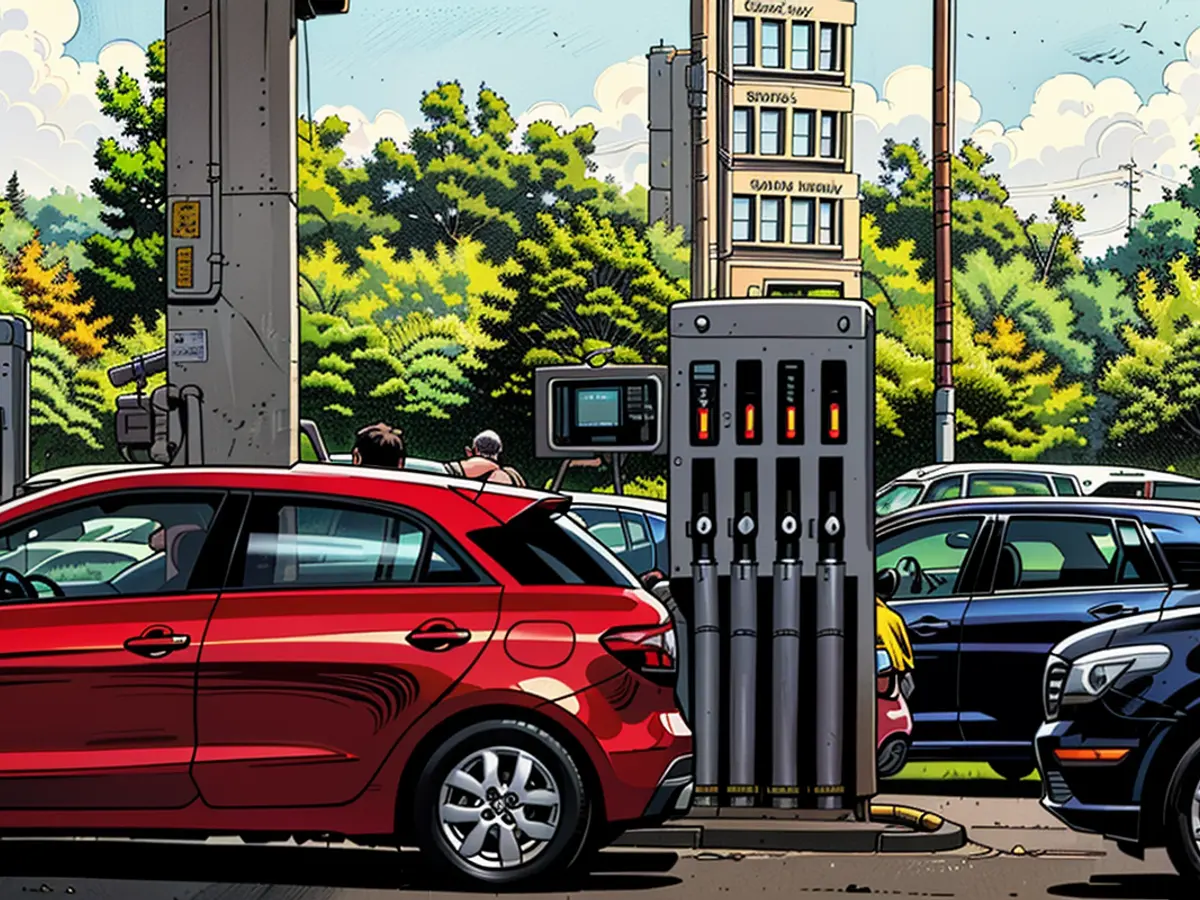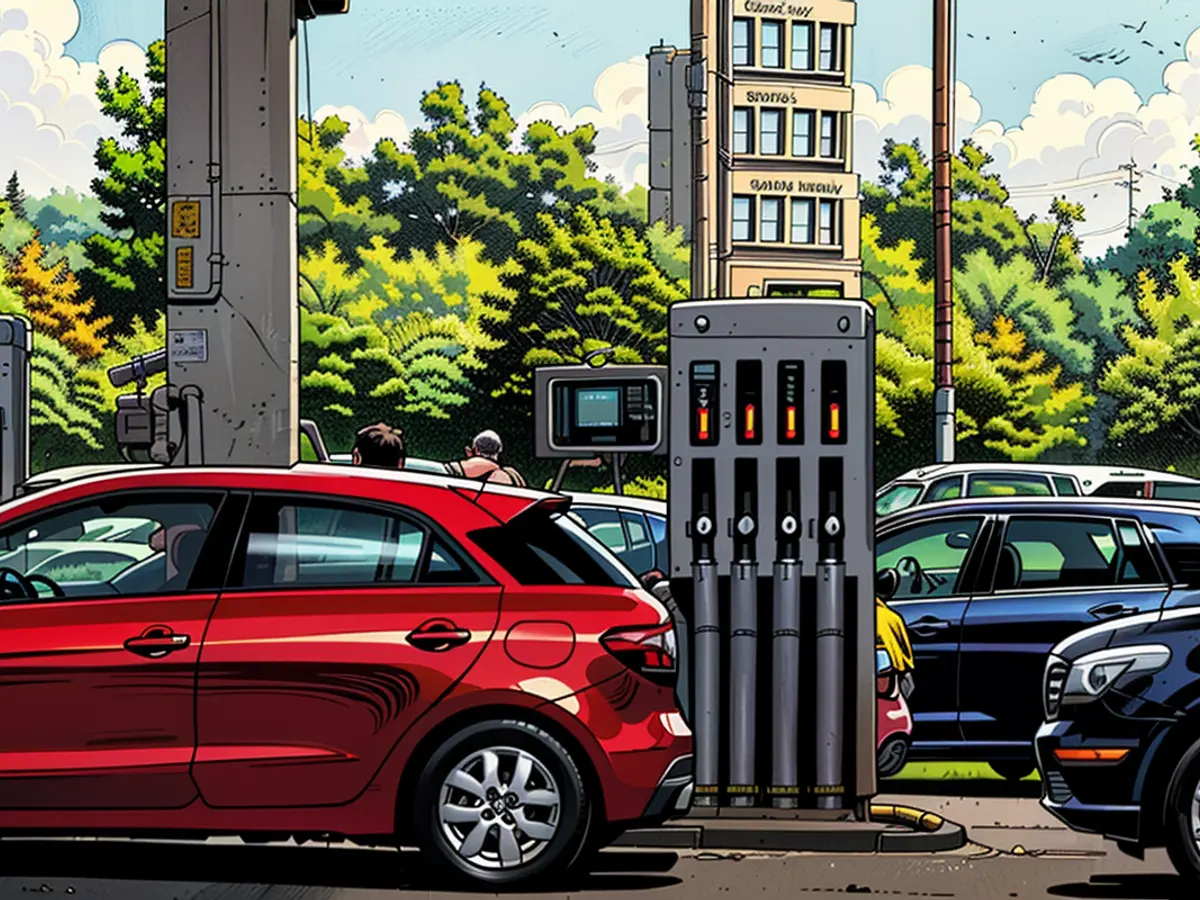The automotive sector advocates for more stringent climate goals for the oil sector.
By 2045, Germany aims to make its road traffic climate-neutral, but the current plan might fall short, says the automotive sector. They are now advocating for strict regulations for the petroleum industry to inspire investments in this area.
The automotive industry believes that stringent regulations for the petroleum industry are crucial for achieving climate-neutral road traffic by 2045. They argue that the Renewable Energy Directive (RED III) adopted by the EU at the end of last year is not ambitious enough.
The German government needs to strengthen its implementation in national law, according to the German Automobile Industry Association (VDA). As VDA President Hildegard Müller put it, "Politics should establish incentives for the rapid deployment of renewable energy carriers and thus encourage investments."
The automotive industry seeks to ensure that, in addition to electric vehicles, alternative fuels such as bioethanol and e-fuels are readily available. Even if the German government succeeds in reaching its goal of 15 million electric vehicles by 2030, there will still be 40 million gasoline or diesel-powered cars.
VDA Pushes for Tighter Rules
Recently, BMW CEO Oliver Zipse also spoke out, saying, "As politics demands the electrification of the automotive industry, it should also demand that the fuel industry provides CO₂-free electricity, hydrogen, and CO₂-neutral fuels."
RED III's ultimate goal is to switch to renewable energy in all sectors by 2050. Germany aims to achieve this by 2045. However, the VDA worries that the initial targets for 2030 do not offer enough incentive for the petroleum industry to invest in the production of eco-friendly fuels. The EU targets a minimum of 29 percent renewable energy, including charging power and fuels, or a 14.5 percent reduction in greenhouse gases compared to the required amount of fossil fuels by 2030.
Germany has already opted for a higher reduction quota of 25 percent. The VDA believes 35 percent is necessary. According to EU regulations, a quota of 5.5 percent for bioethanol and at least 1 percent synthetic fuel must be met by manufacturers. The VDA advocates for at least 5 percent. Moreover, interim targets for greenhouse gas reduction should be set for 60 percent by 2035, 90 percent by 2040, and 100 percent by 2045. "In the name of climate protection, no fossil fuels should be sold at German gas stations after 2045," expressed the association.
The automotive industry believes that stricter regulations, particularly for the production and use of bioethanol and e-fuels, are essential for achieving climate-neutral road traffic by 2045. To support this, the VDA proposes increasing the mandatory quota for bioethanol and synthetic fuel from the current EU standards.








